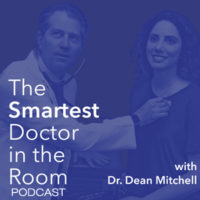Adrenal Fatigue: How Stress and Diet Play a Big Role!

Stress kills: it took a long time but even cardiologists recognize that acute and chronic stress can cause heart attacks. Gastroenterologists see patients with ulcers and irritable bowel syndrome that flare up under stress. And no one would argue that stress can trigger anxiety attacks. The common theme in all these conditions is what has been termed psychoneuroimmunology: the field that shows the connections between the nervous system and the body. The organ that is the major player in all these conditions involving stress and diet are the adrenal glands.
Adrenal Glands: The Fight or Flight Response
You’ve probably heard the phrase that under stress the body goes into “fight or flight” mode; meaning, each one of us has to determine based on the situation whether to run away from a dangerous situation or stay and fight it out. In some ways, hundreds of years ago, the decision making was simpler – but not less dangerous – if our ancient, hunter-gatherer ancestor saw a lion or tiger he ran for safety.
In other situations, our early ancestors might be up against another tribe trying to take his food or harm his family. In response, he would probably get out his bow and arrow and fight it out. In both of these cases, the adrenal glands were hard at work pumping out the hormones adrenalin (epinephrine) and cortisol.
How Stress Impacts Your Adrenal Gland
Today, although civilization has changed dramatically, our body and mind still have this primitive chemistry to adjust to perceived dangers.
If the stock market goes down drastically and fear of poverty lurks in our minds, then adrenalin and cortisol go surging. Even if our boss comes into our office and demands a task gets down immediately on an impossible deadline- up goes the adrenalin and cortisol. These are examples of the acute ‘fight or flight’ phenomenon.
The more dangerous effect on our adrenals is chronic stress. Drs. Holmes and Rahe came up with a scale that showed events in our lives that are unavoidable can lead to chronic stress. The Holmes-Rahe scale allows a point system based on the severity of the stress:
- Death of a spouse 100 pts
- Divorce 73pts
- Marital separation 65 pts
- Jail term 63 pts
- Click here to see the full Holmes-Rahe Stress Inventory
If you score above 150 on this scale you have a 50% chance of developing an illness within the year; if you score above 300, you have a 90% risk.
How to Avoid Falling to Illness
Now, none of us can avoid life’s hardships, but there are ways to be more stress hardy to avoid being the one falling to illness.
The stress hardy formula was put forth by Dr. Suzanne Kobasa and she emphasized the importance of the 3 C’s: Challenge, Control, and Commitment.
- First, try to see difficulties as a challenge and find a way to be proactive in response. The phrase: “You can’t stop the waves, but you can learn to surf” comes to mind.
- Take control means having a plan on what you can do to mitigate or adapt to the new situation; again, having some control is key. Interestingly, in a review of jobs that were viewed as most stressful airline controllers were found to have higher stress scores than the actual airline pilots- why? They couldn’t control the flight pattern, only make recommendations. The pilot had the ultimate control.
- Commitment means are you socially connected: to a family member, a close friend or members of your religion; the reasons this is important the simple question researchers asked patients was: “Do you have someone who could drive you to the hospital in case of an emergency?” The people who responded no typically had worse outcomes.
Medical Testing the Adrenal Glands
The lab tests for measuring adrenal function are trickier than thyroid testing. The time of day the blood specimen is collected is critical. The main adrenal hormones tested, such as cortisol, DHEA and aldosterone all should be drawn at the lab or doctor’s office no later than 9:00 am. The reason is that these hormones fluctuate with a diurnal variation (highest in the early morning and lower in the evening). In obvious cases of Adrenal failure, the above hormones which should be at their highest in the morning are in the low range.
Another important way to assess adrenal function is with a saliva test. Genova labs make an Adrenal Stress Kit that measures through saliva four different times of the day the cortisol and DHEA levels; these give very important indicators as to how the adrenal glands are functioning throughout the day.
Adrenal Rejuvenation
At Mitchell Medical Group, we have seen patients rejuvenate their adrenal glands with medical intervention and natural healing treatments the patients can do at home.
- Breathing exercises that are taught in yoga classes along with yoga postures are a must; in Asia, they knew for thousands of years the healing of mind and body could be achieved through breathing and simple poses.
- Diet: the adrenals are dramatically affected by sugar and salt intake. I strongly advise my patients with adrenal fatigue to follow a low sugar or low-glycemic diet. This does mean limiting or avoiding entirely processed carbohydrates, especially bread and pasta.
- CBD oil: this form of marijuana or cannabis (the one that doesn’t make you high) but does work great to reduce anxiety has worked tremendously for our patients.
- Hormone replacement: can be done with low doses of Cortef and Florinef if the adrenal gland is in failure and needs support; we have seen this in some of our Chronic fatigue patients who were bed-bound and then improved.

At Mitchell Medical Group, we carefully evaluate many of our candida and chronic fatigue patients for Adrenal fatigue – and if they have it we help them!
– Dr. Dean Mitchell M.D.
Mitchell Medical Group in NYC and Long Island
About the Author – Dr. Dean Mitchell, M.D.
Dr. Dean Mitchell M.D. is a Board Certified Allergist and Immunologist based out of NYC. He graduated from the Sackler School of Medicine and completed training at the Robert Cooke Allergy Institute in New York City. He is also a Clinical Assistant Professor of Clinical Immunology at Touro College of Osteopathic Medicine, a fellow of the American Academy of Allergy, Asthma and Immunology, and the author of Allergy and Asthma Solution: The Ultimate Program for Reversing Your Symptoms One Drop at a Time. Dr. Dean Mitchell, M.D. has also been featured in The New York Times, The Huffington Post, Fitness Magazine, Dr. Oz and News NY 1. Dr. Mitchell also hosts the podcast The Smartest Doctor in the Room – a combination of a lively, personal and in-depth interview with top healthcare specialists.
Reference
The Holmes-Rahe Stress Inventory, The American Institute of Stress.
https://www.stress.org/holmes-rahe-stress-inventory

